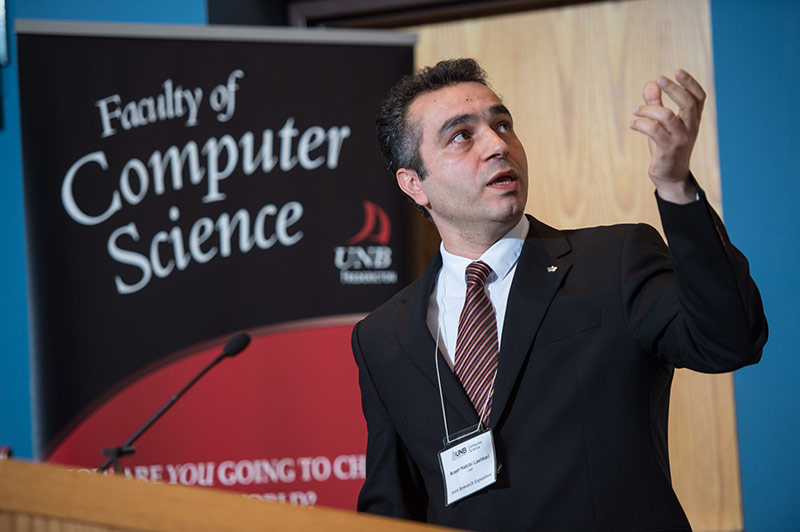UNB computer science faculty member wins teaching innovation award
Author: UNB Newsroom
Posted on Dec 18, 2020
Category: UNB Fredericton

Dr. Arash Habibi Lashkari, assistant professor at the University of New Brunswick’s faculty of computer science and research coordinator for the Canadian Institute for Cybersecurity (CIC), recently won a 2019-2020 UNB teaching Innovation Award for his new teaching technique, Think-Qcussion.
Dr. Lashkari believes that every classroom has its own unique community, especially when international students are exhibiting multicultural learning styles. To cater to diverse classroom environments and learners' needs, Dr. Lashkari designed and executed Think-Qcussion in 2010 when he was a lecturer at an international university in East Asia.
“My teaching philosophy is based on the idea that every student possesses a unique learning style that needs to be addressed with a stimulating educational environment,” said Dr. Lashkari. “My role as an instructor is to create an ambience in the classroom that fosters practical learning, while encouraging the learners. My goal is to deliver both professional and expert training to students that will sharpen the skills needed for their careers.”
Dr. Lashkari views teaching as a lifelong two-way communication of teaching and learning from his students. His philosophy comprises five essential elements:
- Teaching must instill curiosity among students;
- Practical but fundamental teaching is essential for professional and personal growth;
- Peer-learning is the best practice;
- Up-to-date technology plays a pivotal role in delivering course material; and
- An instructor's role is to act as a leader.
All of his teaching sessions are divided into three parts: Reviewing concepts and topics covered in previous sessions; actual teaching (theory and practice); and Think-Qcussion.
“In the first part of the teaching session, I talk and review the previous concepts taught in the class,” explains Dr. Lashkari. “This is an exercise that helps students recall the concepts taught while maintaining connectivity with the subject matter. The motive here is to raise students' curiosity and let them think outside of the box.”
The second part involves actual teaching practice, and it consumes the majority of time in Dr. Lashkari’s teaching session. The last part is a two-step process. At the end of each class, Dr. Lashkari selects a random student from one of the previous day's attendance lists and asks them to ask a question and suggest one number randomly.
“The first step in Think-Qcussion is where a student thinks of a logical question,” said Dr. Lashkari. “We then select a second student to respond to the first student's question. Once the second student responds, they will ask another question and then suggests a random number that will be the third student chosen from the attendance list. This process continues until questions related to all of the topics are covered. With Think-Qcussion, students are comfortable with answering questions that enhance their knowledge, which boosts their self-confidence.”
To find out more about Dr. Lashkari’s technique, visit GitHub. He is also working on an application for instructors and lecturers which will be available in the new year.
Media contact: Angie Deveau
